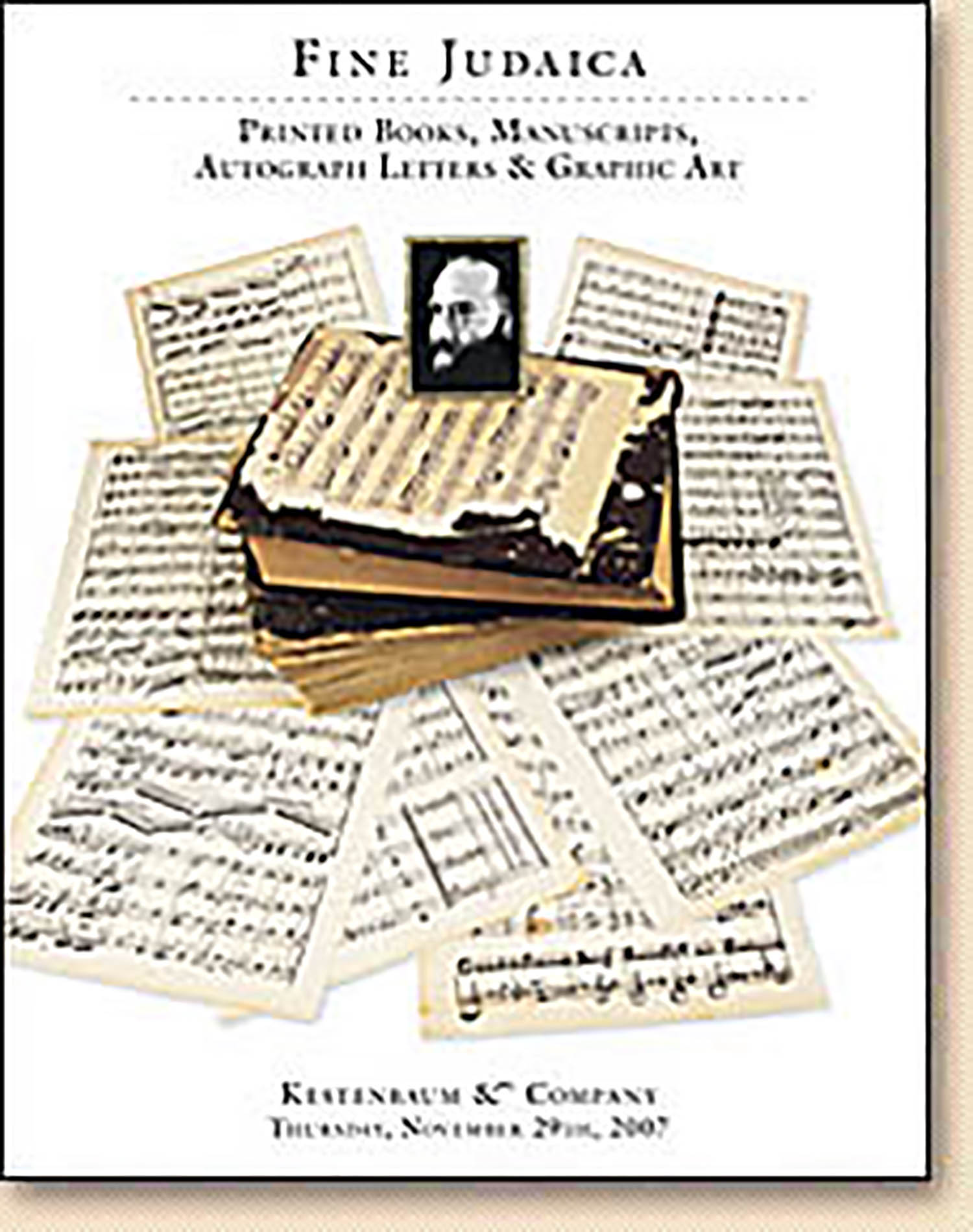(JERUSALEM)

AUCTION 38 |
Thursday, November 29th,
2007 at 1:00
Fine Judaica: Printed Books, Manuscripts, Autograph Letters & Graphic Art
Lot 291
(JERUSALEM)
Jersalem: (Ca. 1620-1630)
Est: $8,000 - $10,000
AN HISTORICALLY IMPORTANT LETTER. RARE TO FIND HEBREW MANUSCRIPTS FROM JERUSALEM FROM SUCH AN EARLY DATE.
The first signatory of this letter, R. Samuel ibn Sid (d. 1645), was a highly regarded scholar and mystic. Frumkin in Toldoth Chachmei Yerushalayim (Part II, p.13) relates in the name of Divrei Yoseph (a manuscript he studied in the Oppenheim collection in Oxford) that during the course of a severe drought, the Rabbis of Jerusalem chose R. Samuel to intercede, whereupon his prayers for rain were successful.
In 1625 R. Samuel ibn Sid was incarcerated and held to ransom by the ruler of Jerusalem, Mohammed ibn Farouk. R. Samuel was eventually released on the condition that his son-in-law Azariah Zvi was imprisoned in his place. Ibn Sid travelled to Constantinople and was able to prevail upon the Sultan to replace ibn Farouk with a less despotic ruler of Jerusalem. Nonetheless, in the aftermath of the tyranny, the impoverished Jewish community of Jerusalem were burdened with substantial debts due to the ransom demands imposed on them during Farouk’s reign. Forced to borrow money from Arab neighbors at extravagant rates of interest, the Jewish community of Jerusalem sent emissaries to the Diaspora to collect funds to ease their burden. The present letter discusses the disbursement of the funds collected. The unnamed recipient of this letter was apparently a well-respected Rabbi residing in Turkey who would exchange the monies raised for "grushim," the Turkish legal tender current in Jerusalem.
See J. Gellis, Encyclopedia Le-Toldoth Chachmei Eretz Israel, p. 144; Yaari, Shluchei Eretz Yisrael, pp.269-70, S. Wanunu, S. Encyclopedia Arzei Ha-Levanon, p. 2225; D. Rossoff, Where Heaven Touches Earth - Jewish Life in Jerusalem from Medieval Times to the Present, pp. 56-64. See also Chorvath Yerushalayim (Venice, 1636) in which ibn Sid's tribulations recounted above, are related.
